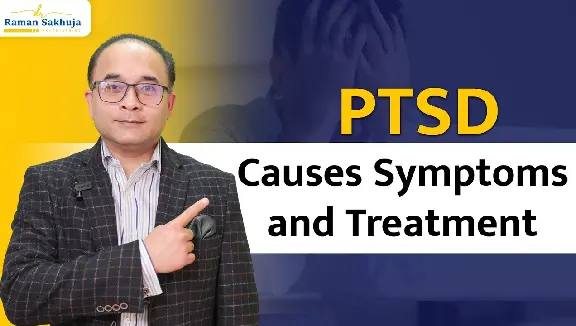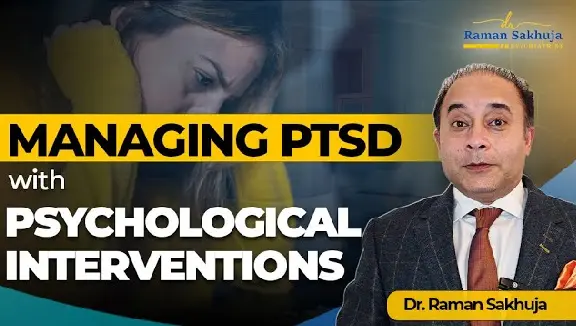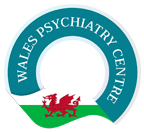
Post-Traumatic Stress Disorder (PTSD)
As the name suggests, post-traumatic stress disorder arises after a psychological trauma and symptoms are largely those of reliving experiences of the trauma which can take the form of flashbacks, nightmares or intrusive images, thoughts, emotions related to the traumatic event. The individual suffering with the symptoms also has several triggers that remind them of the past, and do tend to avoid these triggers or reminders. Sufferers of PTSD also have the symptoms of hypervigilance- they can be scanning their surroundings and environment for potential threats and are generally highly anxious and fearful in situations that may bring about re-experiencing phenomena.
How is this diagnosed?
As part of a comprehensive Psychiatric evaluation, detailed history is often used along with any collateral information from family or friends. Certain screening instruments, which are questionnaire format, can also be used to supplement the clinical information. Recognised diagnostic classificatory systems for Psychiatric diagnoses are used to arrive at a diagnosis.
Are there any other problems along with PTSD?
PTSD can often present with other comorbid features such as anxiety, secondary depressive symptoms, emotional numbing and/or substance misuse. Other psychiatric disorders comorbid with PTSD are often seen as well.
How is it treated?
Psychological treatments that are specifically designed for traumatic experiences remain the mainstay of treatment. There are several models of psychological interventions that can be used, however, Trauma focused Cognitive Behavioural Therapy (CBT) and/or Eye Movement Desensitisation and Reprocessing (EMDR) therapy are the most common psychological interventions used in treatment for post-traumatic stress disorder.
In addition to the above, psychiatric medications are commonly used. including medications that specifically target certain symptoms such as nightmares and sleep difficulties. These have to be discussed and prescribed by a specialist.
Any comorbid conditions need to be treated as such as part of an individualised and tailored management plan.
What is Eye Movement Desensitisation and Reprocessing (EMDR)?
As a trained EMDR practitioner, in the past, Dr Sakhuja has used this treatment for PTSD and in other anxiety related conditions. The easiest way to understand this treatment is to think of the brain as being very efficient organ that files away the different memories in a very organised fashion. Whenever certain past memories need to be accessed, the particular file related to that memory is taken out, looked at, described and then filed away. However, emotional memories related to trauma are often not processed completely to be able to be stored away or filed away. These emotional and unprocessed memories keep coming surfacing and re-surfacing causing the emotional distress and symptoms of PTSD. It is understood that the external stimulation by movements of the eyes or tapping in some instances as part of the EMDR therapy, can help in the start of the processing of these traumatic memories such that they can be fully integrated into life experiences and the memory apparatus to be stored and filed away without leeding to emotional distress.
It is important to understand that this therapy does not wipe away the memories but simply attempts to process them enough so that on recollection they do not bring about an emotional distressing response for the individual.
Want to know more?
Dr Raman Sakhuja has treated and lectured on PTSD on several occasions in his role as an educator throughout his career. It is best to look at booking a consultation and discuss in detail if you think you or any of your family member or friend is struggling with any trauma related psychological problems.

PTSD Causes Symptoms and Treatment | Post-Traumatic Stress Disorder | PTSD in United Kingdom

How to Manage Post-Traumatic Stress Disorder? (PTSD) | Psychiatrist in Cardiff | Dr. Raman Sakhuja
(9:30 AM - 1:30 PM)
(5:30 PM - 8:00 PM)
Request An Appointment
For appointments, please contact us via email at: info@walespsychiatrycentre.com
- Terms & Conditions | Legal Disclaimer | Privacy Policy | Complaints Policy

